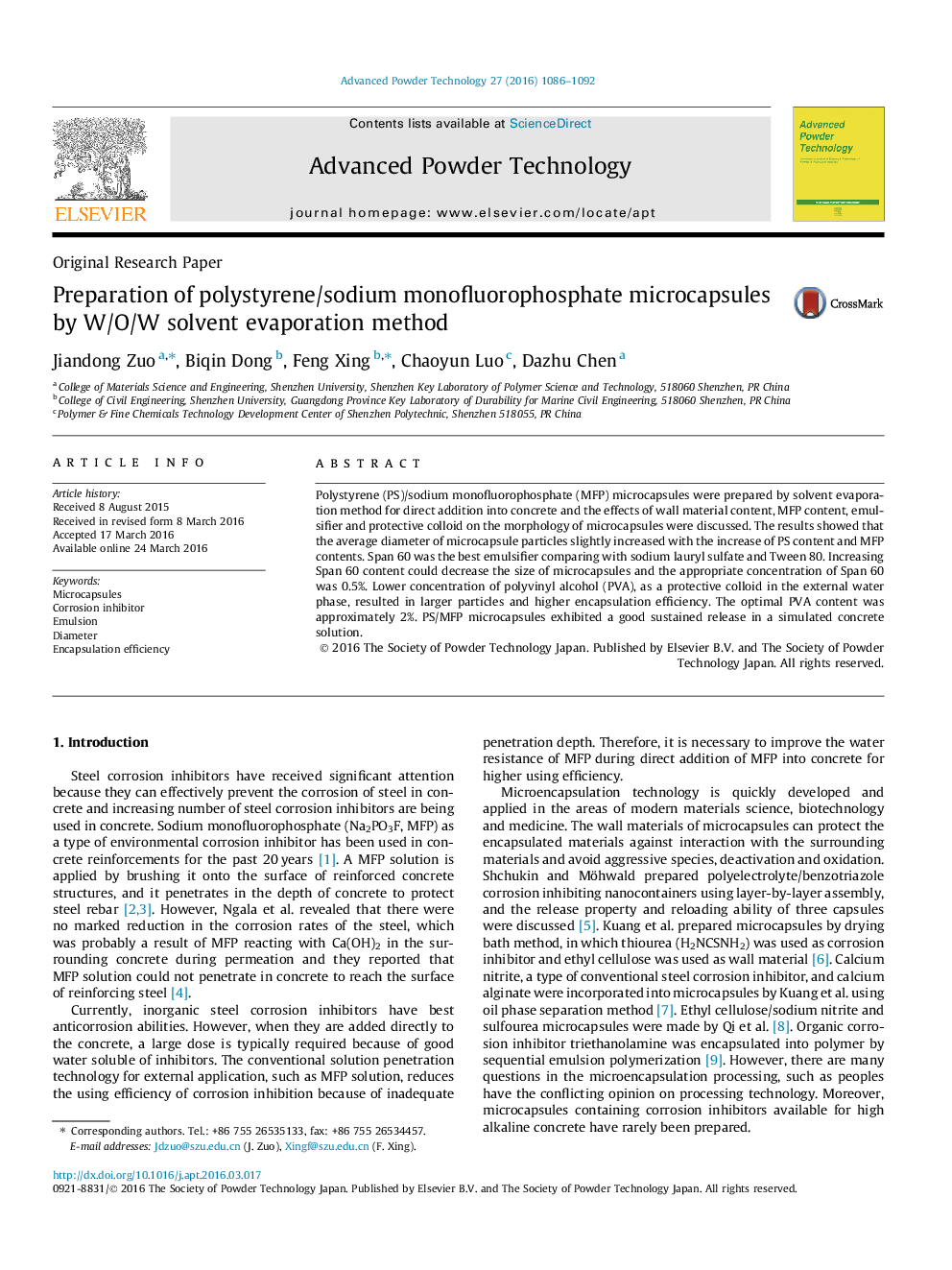| Article ID | Journal | Published Year | Pages | File Type |
|---|---|---|---|---|
| 143893 | Advanced Powder Technology | 2016 | 7 Pages |
•MFP could be encapsulated to realize the direct adding in concrete.•The size of PS/MFP microcapsules was mainly adjusted by processing technology.•Encapsulation efficiency of microcapsules was obviously improved by PVA content.•PS/MFP microcapsules had good releasing in the simulated concrete solution.
Polystyrene (PS)/sodium monofluorophosphate (MFP) microcapsules were prepared by solvent evaporation method for direct addition into concrete and the effects of wall material content, MFP content, emulsifier and protective colloid on the morphology of microcapsules were discussed. The results showed that the average diameter of microcapsule particles slightly increased with the increase of PS content and MFP contents. Span 60 was the best emulsifier comparing with sodium lauryl sulfate and Tween 80. Increasing Span 60 content could decrease the size of microcapsules and the appropriate concentration of Span 60 was 0.5%. Lower concentration of polyvinyl alcohol (PVA), as a protective colloid in the external water phase, resulted in larger particles and higher encapsulation efficiency. The optimal PVA content was approximately 2%. PS/MFP microcapsules exhibited a good sustained release in a simulated concrete solution.
Graphical abstractPolystyrene (PS)/sodium monofluorophosphate (MFP) microcapsules were prepared by solvent evaporation method for direct addition of MFP into concrete and gradual release. The effects of processing parameters on the morphology and encapsulation efficiency of microcapsules were clarified. This discussion is necessary because these processing technologies are ambiguous and doubtful in the former literatures. This paper will provide the reference for the preparation of microcapsules containing water soluble materials by multiple phase emulsion method.Figure optionsDownload full-size imageDownload as PowerPoint slide
